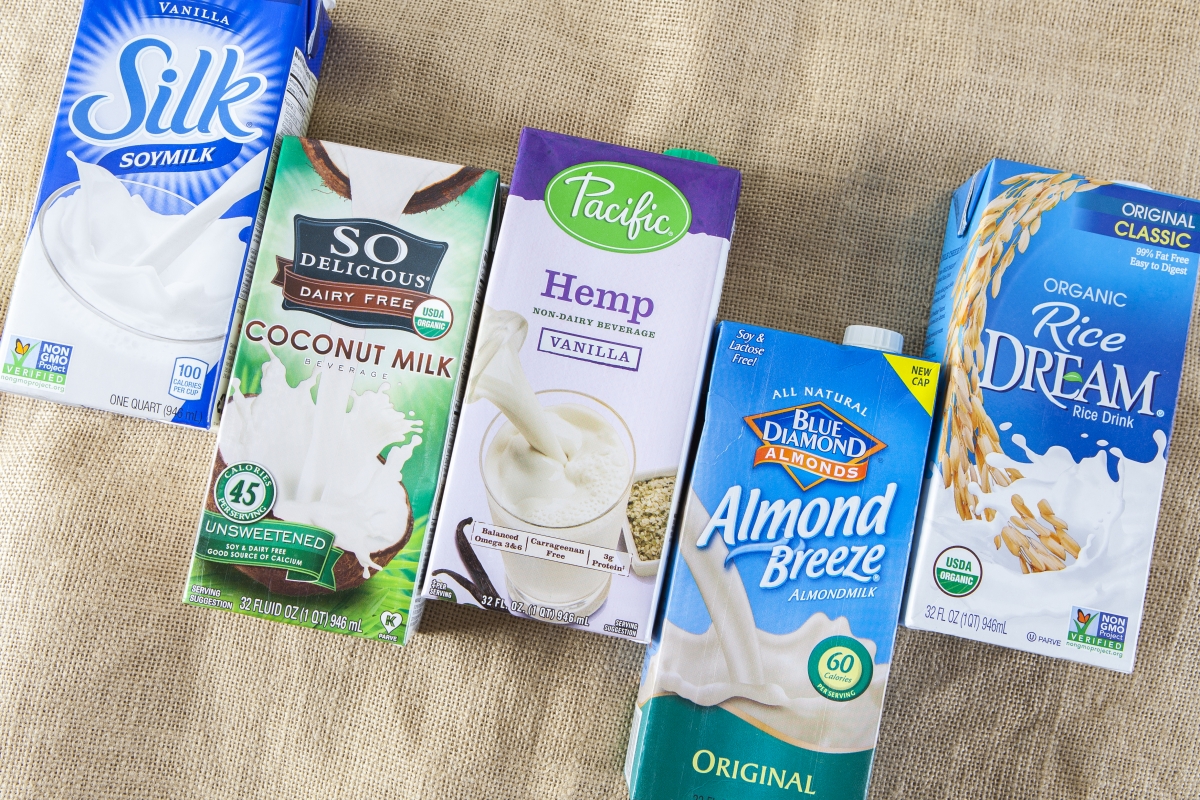Daily Dish the Nugget Markets blog

Milk vs. “Milk”
Health Notes by Dr. Liz
Please note that this is an older article. Any products or services pictured or described may have changed or may no longer be available. Thank you for visiting!
Whether you’re looking for something to enjoy with your cereal, coffee or cookies, standard dairy milk is not the only option anymore. Along with cow’s, sheep’s and goat’s milk, there are also a variety of alternative “milk” beverages made from a slurry of ground seeds like almond, coconut, soy or rice mixed with water.
Here’s an inside look at how each non-dairy milk alternative stacks up nutritionally.
Whether you’re looking for something to enjoy with your cereal, coffee or cookies, standard dairy milk is not the only option anymore. Along with cow’s, sheep’s and goat’s milk, there are also a variety of alternative “milk” beverages made from a slurry of ground seeds like almond, coconut, soy or rice mixed with water.
These non-dairy milk beverages are often referred to as “milk” since they look so similar, but when it comes to nutrition these beverages are quite different than the real thing. For instance, all non-dairy seed beverages are lactose-free, which is great news for some who must avoid this sugar due to digestive concerns.
Thirsty for more? Here’s an inside look at how each non-dairy milk alternative stacks up nutritionally:
Soy: Made from ground soybeans and water, each cup of soymilk provides about 6-8 grams of protein and all the same essential amino acids that cow’s milk does. Soymilk also comes fortified with calcium, vitamin D and B12 (which does not occur naturally in soy) at the same amount of cow’s milk. This makes soymilk a good lactose-free exchange for regular milk, but be sure to check the label for added sugars, as soymilk is available plain and flavored.
Rice: Much lower in protein, rice milk provides just 1 gram per cup, but may come fortified with calcium, vitamin D and B12. Label reading is a must, as brands vary and nutrients may be present in amounts similar to cow’s milk or close to none at all. Rice milk also comes in a sweetened version, which adds sugar calories (90 calories per cup vs. 120 calories for sweetened rice milk).
Almond: A combination of water and ground almonds, this non-dairy beverage is also very low in protein with a scant 1 gram per cup. Check the label for sweetening and calcium and vitamin D levels since many brands come fortified with these key nutrients, while some varieties supply none at all.
Hemp: These seeds are rich in essential fats, so each cup of this non-dairy beverage supplies both omega-3 and omega-6 essential fats in good balance (about 4 grams total per cup) along with a touch of vitamin E. Hemp milk also supplies a bit more protein a 3-4 grams per cup and is usually fortified with vitamins D and B12 and calcium.
Coconut: This non-dairy milk can vary greatly as canned versions are loaded with fat and calories while others, typically packaged in shelf-stable boxes, supply less fat (about 4 grams per cup) and come fortified with vitamins B12 and D. Be aware, this beverage supplies zero protein and little in the way of calcium and other essential nutrients.
Want to see what other milk options you might find in the dairy aisle? Check out Dr. Liz’s nutritional rundown of different dairy milks in the Daily Dish, Udderly Dairy!